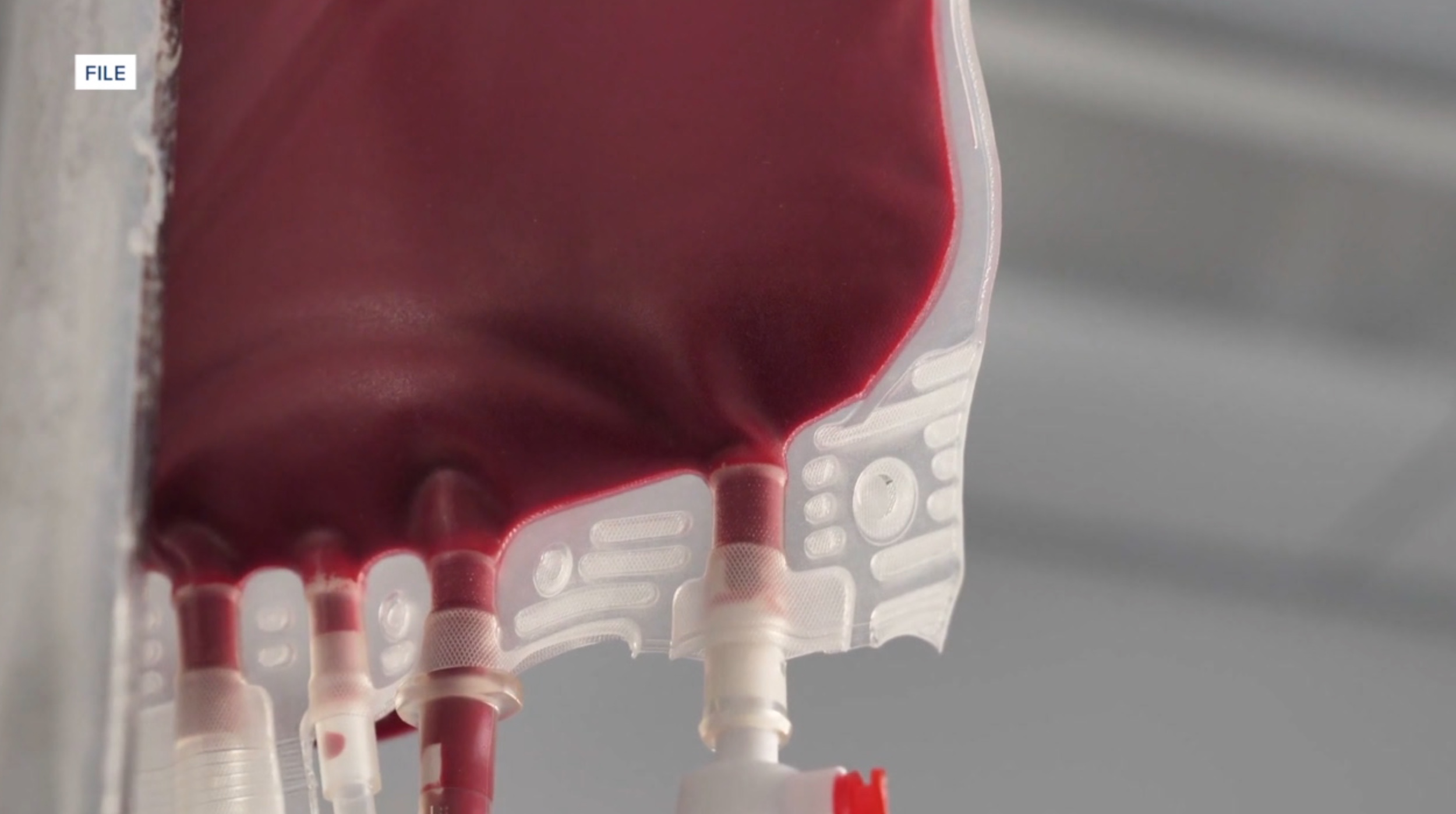INDIANAPOLIS — There's a call to action for eligible Hoosiers to donate blood because supply is at a critically low level across the state.
Versiti Blood Center, which provides blood and blood products to 90 hospital partners throughout the state, says they have less than a one-day supply on their shelves.
This means that communities across the state may not have the blood they need to help those in need.
"This is the lowest the blood supply has been in a decade, and it is dangerous," said Dr. Dan Waxman, senior medical director at Versiti. "Without blood readily available, patients' lives could be at risk. Trauma patients may not have the blood needed for treatment; cancer patients may not have the blood needed for transfusions. It is dire. We urge those who are able to make an appointment to donate today."
Versiti reports that every two seconds, someone needs lifesaving blood to survive.
One in every seven hospital patients needs blood.
Blood donation takes about an hour from start to finish and can save up to three lives.
Versiti reports the greatest need is for O-positive and O-negative blood types.
WRTV talked to Dr. Waxman about why we are seeing such critically low levels across the state and across the country right now.
"Prior to the pandemic, 70 percent of our blood donations were made on mobiles, and these mobiles were at businesses, places of worship and in particular, high schools and universities," saID Waxman. "High school and university donors accounted for 20-30 percent of all donations annually."
Waxman adds that due to the pandemic, more people working from home and more students learning virtually or unable to have visitors, their access to those crucial donors has been greatly limited in the past two years.
He says donating blood is safe during the pandemic, and they take the necessary precautions at their centers across the state and also in their mobile units.
There is some confusion and hesitancy on potential donors during the pandemic due to timing with vaccines and also for people who become infected with COVID-19.
"If you get a vaccine or booster, we ask that you wait just two days just to make sure you don't have any side effects to the vaccine," said Waxman. "The CDC's talked about people who test positive, that now as far as going back to work it's a 5-day period of time as long as they don't have symptoms. Well, we want it to be longer than that for donors. We want it to be at least about 2 weeks from a positive test, symptom free."
Waxman says when you go to an appointment to donate, they do need donors to wear a mask and a temperature check will take place at the door. They also ask you if you feel well that day.
Anyone age 17 or older in good health who meets eligibility requirements is encouraged to give.
Parental consent is required for donors who are 16-years-old to donate blood.
Donors should bring a photo ID that includes their birth date.
To schedule an appointment to donate blood or request a mobile unit at your workplace, school or place of worship, you can call 317-916-5150 or visit Versiti's website.
Donor center locations:
· INDIANAPOLIS: 3450 N. Meridian St.
· FISHERS: 11005 Allisonville Road
· CARMEL: 726 Adams St., Suite 150
· GREENWOOD: 8739 U.S. 31 South
· TERRE HAUTE: 2021 S. Third St.
· LAFAYETTE: 2200 Elmwood Ave., Suite D-16
-

Pope Francis, leader of Catholic Church, dies at age 88
Pope Francis, the 266th pontiff of the Roman Catholic Church, has died after complications from pneumonia in both lungs.
Bill that could improve Indy's roads moves to the Governor's desk
As potholes and cracked pavement plague the streets of Indianapolis, a new bill at the statehouse could pave the way for significant improvements.
More than 1,000 kids show up to The Ross Foundation’s annual Easter Egg Hunt
On Saturday, The Ross Foundation held its annual Easter Egg Hunt. The goal is to help families well beyond the Easter holiday.
Ball State students react to ending DEI programs
On Friday, Ball State students protested the decision to end diversity, equity, and inclusion (DEI) programs, saying it would hurt diversity on campus and give in to racism




